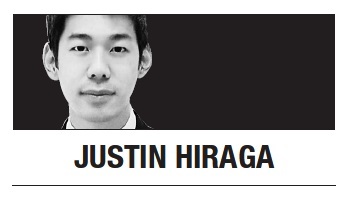 These days we praise charitable donations and philanthropy; however, we must understand that they are the symptoms of a dysfunctional society, not the remedy. It’s similar to the Red Cross during wartime; they can’t stop the war. In many ways, they propagate the dysfunctions because the biggest funders of these temporary resolutions are also the greatest oppressors of our society, form whom these dysfunctions stem.
These days we praise charitable donations and philanthropy; however, we must understand that they are the symptoms of a dysfunctional society, not the remedy. It’s similar to the Red Cross during wartime; they can’t stop the war. In many ways, they propagate the dysfunctions because the biggest funders of these temporary resolutions are also the greatest oppressors of our society, form whom these dysfunctions stem.
There are, for example, many people suffering around the world from curable diseases simply because they don’t have access to proper medical assistance. Why do they have no access? Because they are too poor. That is to say, this problem is derived from the massive income inequality around the world. If they could earn a sufficient living on their own, they wouldn’t need any charitable aid from developed nations. They don’t need rich philanthropists giving them millions of dollars. What they need is rich philanthropists to stop hoarding money and allow them to make a sustainable living.
Let’s look at Bill Gates, who was simply driven to make as much money as possible at any cost. Along the way, he has smothered many smaller companies, copied others’ ideas, and snuffed out many innovative competing products. Yet, all is forgiven and forgotten because now he donates a lot of money. It is exactly this type of thinking that breeds income inequality around the world, which leads to people dying from poverty, and thus preserves the need for these billionaire philanthropists to remedy the situation.
Another exemplary indication of this problem is Lance Armstrong. He cheated to further his career and eventually got caught. Yet, today he is still a millionaire and is respected by millions of people: 3.8 million followers on Twitter to be exact. Why? Because he is a philanthropist who donated lots of money to cancer charities. None of this would have happened had he not cheated, but people forgive and forget. In our society, winners prosper no matter the means, as long as they become philanthropists in the end. Take a moment to think of the other cyclists who didn’t allow themselves to cheat. Where are they now? Can you name them? Are they rich and famous?
To address the real origin of the problem, we need to change the way we go about earning and spending money at the very basic level. Instead of being driven to become philanthropists, treat people around you without greed and with consideration. Make your living and enable others around you to do so as well. If you aim to save money in order to be a philanthropist, you provoke everyone to be protective and hoard money also in order to control how the money gets spent. The more everyone does it, the more we are compelled and even forced to do it. We need to stop this vicious circle.
The resolution I’m putting forward is not a utopian concept. We simply need more people investigating and adopting business models that can enrich ordinary people’s lives, which can free us from a life bound by servitude and dependency. In turn, this would empower us to solve our societal problems without asking such billionaires to solve them for us with their accumulated wealth. Nowadays I’m starting to see more and more entrepreneurs and business owners trying to figure this out, and it is quite inspiring. I think the real change derives from the ordinary things we do.
If this type of mission is to succeed and be sustained, the principal function of business must be ordinary. It is impossible for a sustainable economy to remain healthy and upright if it is only supported by the crutch of charitable donations and philanthropy. The principal drive to better our society must come from ordinary businesses.
Hero-worshipping rich benefactors and philanthropists encourages everyone to accumulate more wealth than they need. We do not need billionaire philanthropists; we need ordinary business owners who treat other humans with respect and encouragement. They are not rare or even uncommon; they exist all around us if we look carefully enough. It’s just that we are so busy looking up to iconic figures like the Bill Gateses of the world that we can’t see them.
By Justin Hiraga
Justin Hiraga is an assistant professor at the Department of International Business Languages of Seokyeong University in Seoul. He can be contacted at jhiraga@gmail.com. –Ed.

